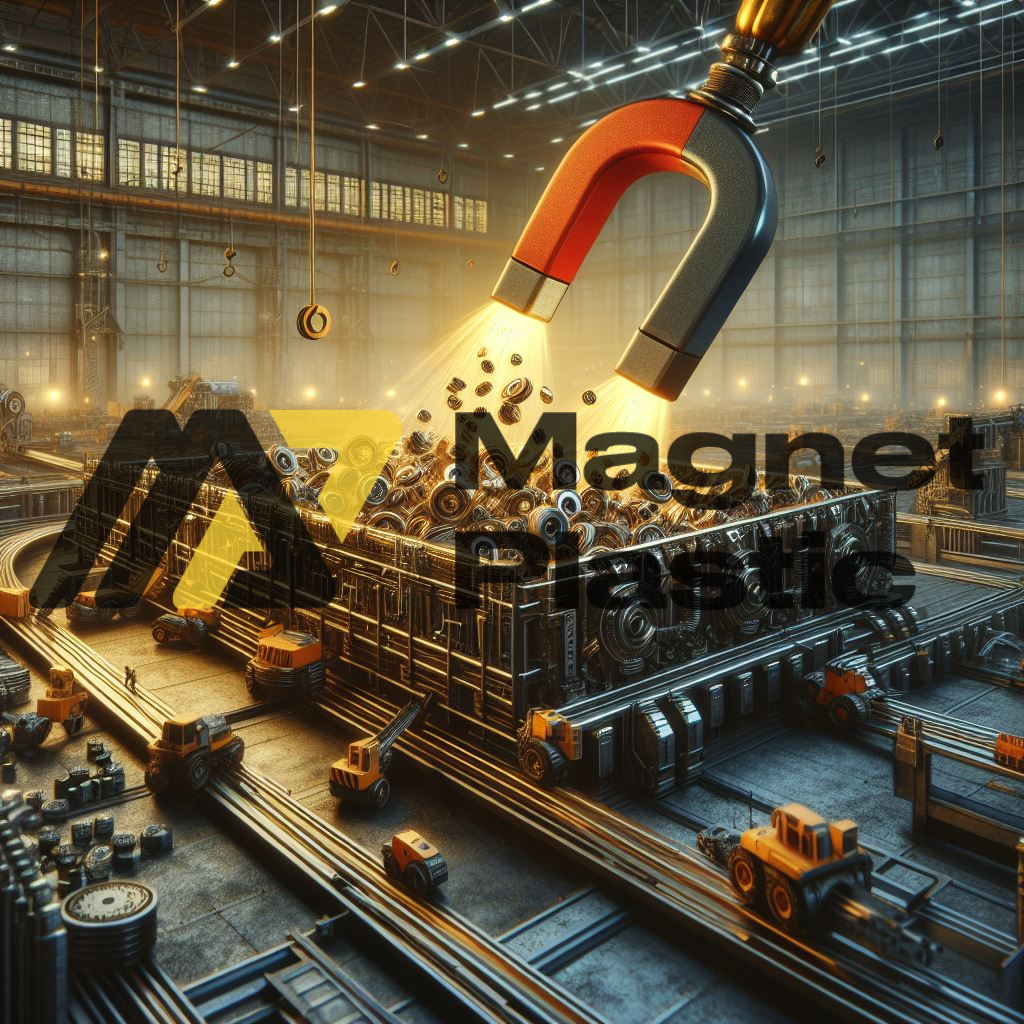Magnets in the Secondary Sector
In the secondary sector, which includes industry and manufacturing, magnets are crucial for innovation and process improvement. From industrial machinery to product manufacturing, magnets play a key role in optimizing operations and enhancing overall efficiency.
Automation and Magnetic Machinery
Magnetic Servomotors: In industrial automation, magnetic servomotors driven by magnetic force have become essential components. These motors provide precise performance and quick response, enhancing efficiency in production lines and automated machinery.
Magnetic Conveyor Belts: Widely used in industry for efficient material transport, magnetic conveyor belts ensure smooth, controlled movement, facilitating continuous product flow throughout the manufacturing process.
Magnetic Separation Technologies
Magnetic Separators: In materials production, such as metals and chemicals, magnetic separators are vital. They use magnetic force to remove unwanted particles, improving product quality and reducing contamination risk.
Magnetic Recycling: In recycling processes, magnets are crucial for separating ferrous and non-ferrous materials. Magnetic equipment allows efficient metal sorting, contributing to sustainability and waste reduction.
Innovation in Tools and Equipment
Magnetic Tools: Manufacturing benefits from magnetic tools like magnetic holders and lifters. These tools aid in handling and securing metal parts, enhancing workplace efficiency and safety.
Welding Applications: Magnets are used in welding to hold pieces in place, ensuring precise alignment during the process. This reduces the need for additional supports and speeds up production.
Magnetic Quality Control
Magnetic Particle Inspection: For material and component inspection, magnetic particle techniques are used to detect defects. This technique leverages magnets to reveal internal imperfections in ferrous materials, ensuring high-quality standards.
Magnetic Coding: For product identification and traceability, magnetic coding provides durable and resilient labeling, particularly useful in industrial environments where exposure to harsh conditions is common.
In summary, the relationship between magnets and the secondary sector is one of continuous improvement and efficiency. From industrial automation to quality inspection, magnets are essential in various applications that drive development and advancement in manufacturing. Their presence not only streamlines processes but also promotes innovation and efficient production in industry and manufacturing.
